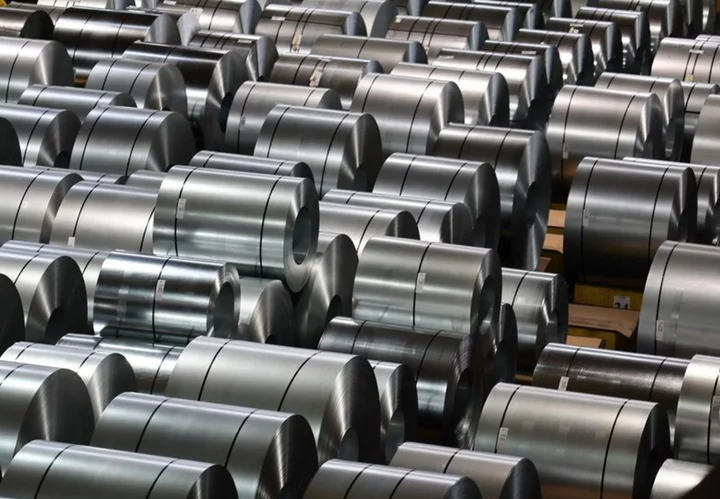By Andreas Rinke and Christoph Steitz
BERLIN/FRANKFURT (Reuters) -Germany's coalition hunkered down to fix a budget crisis, with Chancellor Olaf Scholz telling party members behind closed doors the government may lift borrowing limits, while steel firms on Thursday warned of a "big loss of confidence" for investment.
Scholz's three-way coalition is reeling from a court ruling last week that wiped 60 billion euros ($65 billion) from the budget and forced it to freeze most new spending commitments, delaying talks on the 2024 budget.
The verdict has sparked warnings that growth in the already shaky economy could get dragged down next year, with Germany's IMK economic institute predicting the country could be headed for a winter recession.
The constitutional court ruling, which blocked the government from repurposing unused pandemic funds for green projects and industry support, has raised fears over the future competitiveness of German firms and the loss of jobs abroad.
The crisis could hobble the wider European economy, said the Paris-based Organisation for Economic Cooperation and Development (OECD).
"If there is less investment and spending in Germany over the next few years because there is less money available, this will inevitably have an impact on the EU economy," the head of the OECD's Germany desk Robert Grundke told Reuters.
He said uncertainty was already hitting companies' investment activity and consumer behaviour.
Germany's steel sector added its voice to the growing jitters, warning that the court ruling had put a question mark over more than 40 billion euros in planned investments.
"Politicians must find answers really quickly due to the big loss of confidence in the industry," said Bernhard Osburg, head of the German steel association and CEO of Thyssenkrupp's steel division, the country's top steelmaker.
His comments highlight major uncertainty among Germany's industrial firms, which are already struggling with higher inflation and interest rates and are increasingly looking to more favourable markets such as the United States.
DEFENCE FUND RING-FENCED
However, the defence ministry said a special 100 billion-euro fund for modernising the armed forces was safe.
"In principle, the Bundeswehr special fund is exempt from the budget freeze," the ministry said in a statement, making clear that also applied to projects partially financed from regular defence spending in future.
A manager for a major German defence company, speaking on condition of anonymity, said there was nevertheless a lack of clarity about next year's general defence budget, including long-running projects needing financing authorisation.
Some 20 billion euros-worth of those authorisations could be at risk, he said, although the sector did not expect cuts given the government's commitment to defence.
"At the same time, we are keeping a close eye on potential indirect effects on our supply chains, in case the government decides to reduce support for the production of goods such as steel or semiconductors, which are important for the defence industry," said the manager.
Scholz on Wednesday evening said he expected the parliament to pass the 2024 budget soon but not in haste until it had assessed the impact of the ruling.
Achim Post, a lawmaker in Scholz's Social Democrats (SPD), at a closed door meeting on Wednesday said it was inevitable that the government would suspend a constitutionally enshrined debt brake, a move which the finance minister has so far opposed.
Scholz also described this as conceivable, participants at the meeting told Reuters, adding that the court ruling put the coalition into a difficult situation but it could be resolved.
(Reporting by Andreas Rinke, Christoph Steitz, Holger Hansen, Rene Wagner, Sabine Siebold; writing by Matthias Williams and Madeline Chambers; editing by Christina Fincher, Miranda Murray and Sharon Singleton)

